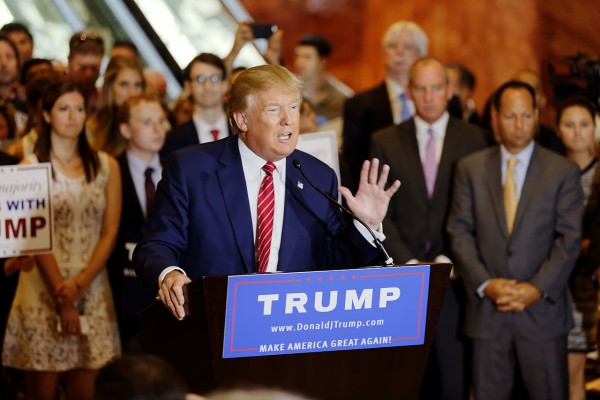
Advertisement
Masayoshi Son is a respected international investor and the billionaire chief executive of SoftBank, Japan. He is a close colleague and business associate of billionaire Terry Gou, the chairman of Foxconn, a Taiwanese company now positioned as the largest electronics manufacturer in the world. As reported by The Christian Monitor, the two men recently privately discussed the potential of a $7 billion Foxconn investment in America, combined with another $50 billion from SoftBank.
This private conversation became very public when Masayoshi Son met with President Trump in December. While answering reporters’ questions in the Trump Tower lobby, a picture was inadvertently taken of a document which detailed the potential deal which could generate “100,000 new American jobs over the next four years.” When Son spoke with reporters he remarked that he celebrated Trump’s appointment, because the president would advocate for deregulation.
Once the cat was out of the bag, Reuters explains, Terry Gou, the Foxconn chief, clarified, saying, “There is such a plan, but it is not a promise. It is a wish.”
If all the regulations and conditions are met, the factory will make panels, or liquid crystal displays, for television screens. This type of manufacturing doesn’t exist in the U.S., even though America is the second-largest market for televisions. The plans, designs and specifications for the plant will be drawn up in coordination with Sharp, a Foxconn subsidiary. The move also depends on available “land, water, power, infrastructure and other investment conditions,” according to Reuters.

Foxconn already has some operations and investments in Pennsylvania, and the economic development folks from the Lehigh Valley Economic Development Corporation (LVEDC) are aggressively pursuing the Chinese investment opportunity, according to The Morning Call. The LVEDC believes that Lehigh Valley’s infrastructure and close proximity to major ports are big benefits for Foxconn, as are their generous offers of free land and reduced electricity rates. Pennsylvania is also a “right-to-work” state, meaning that employees can’t be forced to join a union.
The idea of 30,000 to 50,000 jobs is an exciting prospect for Pennsylvania. They haven’t seen anything like that since Bethlehem Steel employed 31,523 back in 1943.
That all sounds like good news, but there’s an elephant in the room.
The Verge reports that Foxconn has an aggressive plan to eventually replace all human workers with robots, starting with “a benchmark of 30 percent automation at its Chinese factories by 2020.”
Foxconn currently produces 10,000 of its automated “Foxbots” per year, and has already replaced 60,000 workers at one of its factories.
So, while the U.S. is seeking Chinese manufacturing investment dollars and dangling incentives to do so, let’s hope those thousands of new jobs are filled by blue collar workers.
Foxconn, as you may recall, has a checkered past as Apple’s iPhone manufacturer. The New York Times did an exposé on the harsh and inhumane conditions at the Foxconn factories where Apple saves money on manufacturing costs. Explosions from poisonous dust, suicides, hazardous waste, very long working hours and extended overtime, as well as crowded living conditions, have all been documented, although Foxconn disputes the allegations.
Apple and many other well-known tech companies have been taking advantage of cheap Chinese labor and relaxed bureaucracy. One hopes that such issues will not be repeated in this country. Of course, robots don’t complain about those issues, and they sure don’t take lunch breaks or complain about overtime.
Sources:
Submit a correction >>
This article may contain statements that reflect the opinion of the author
Advertisement
Advertisements















